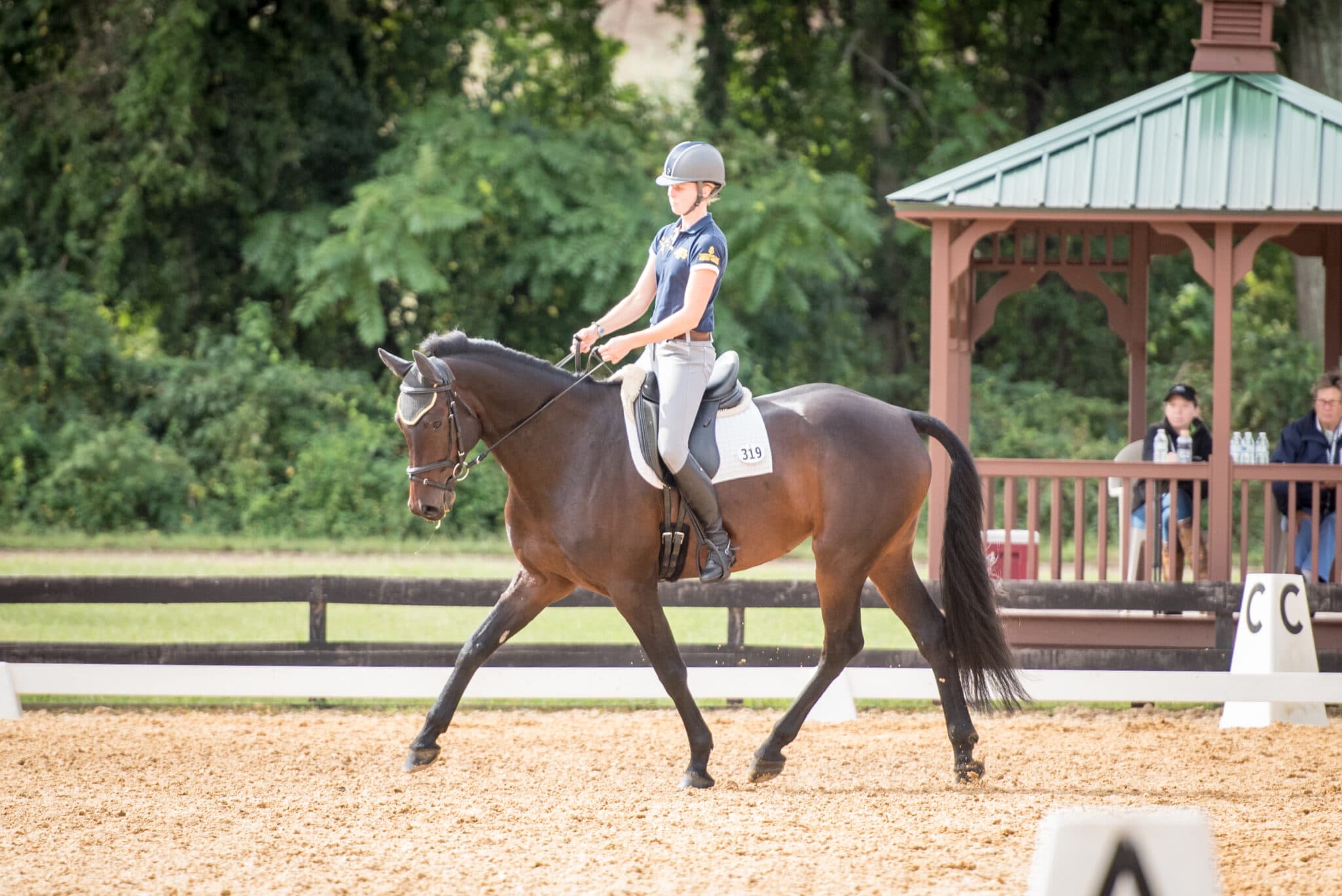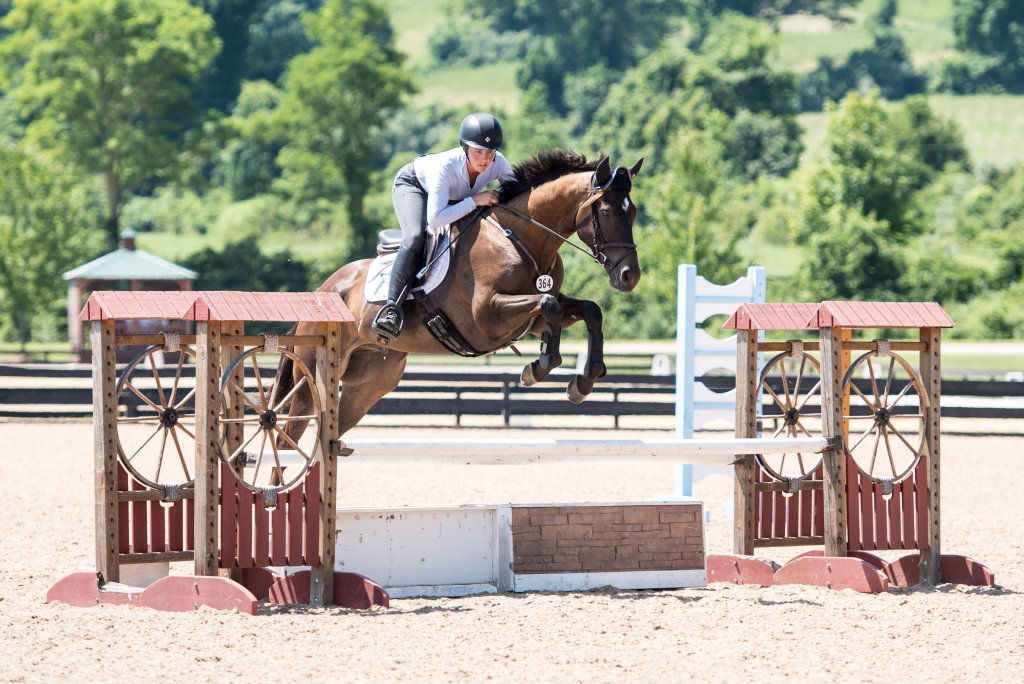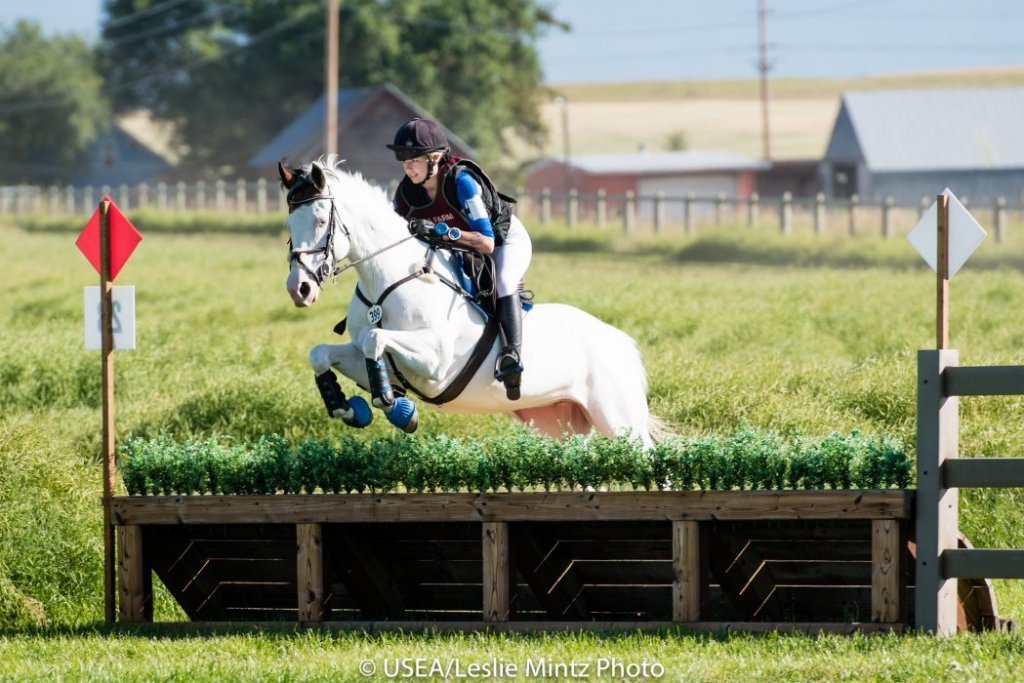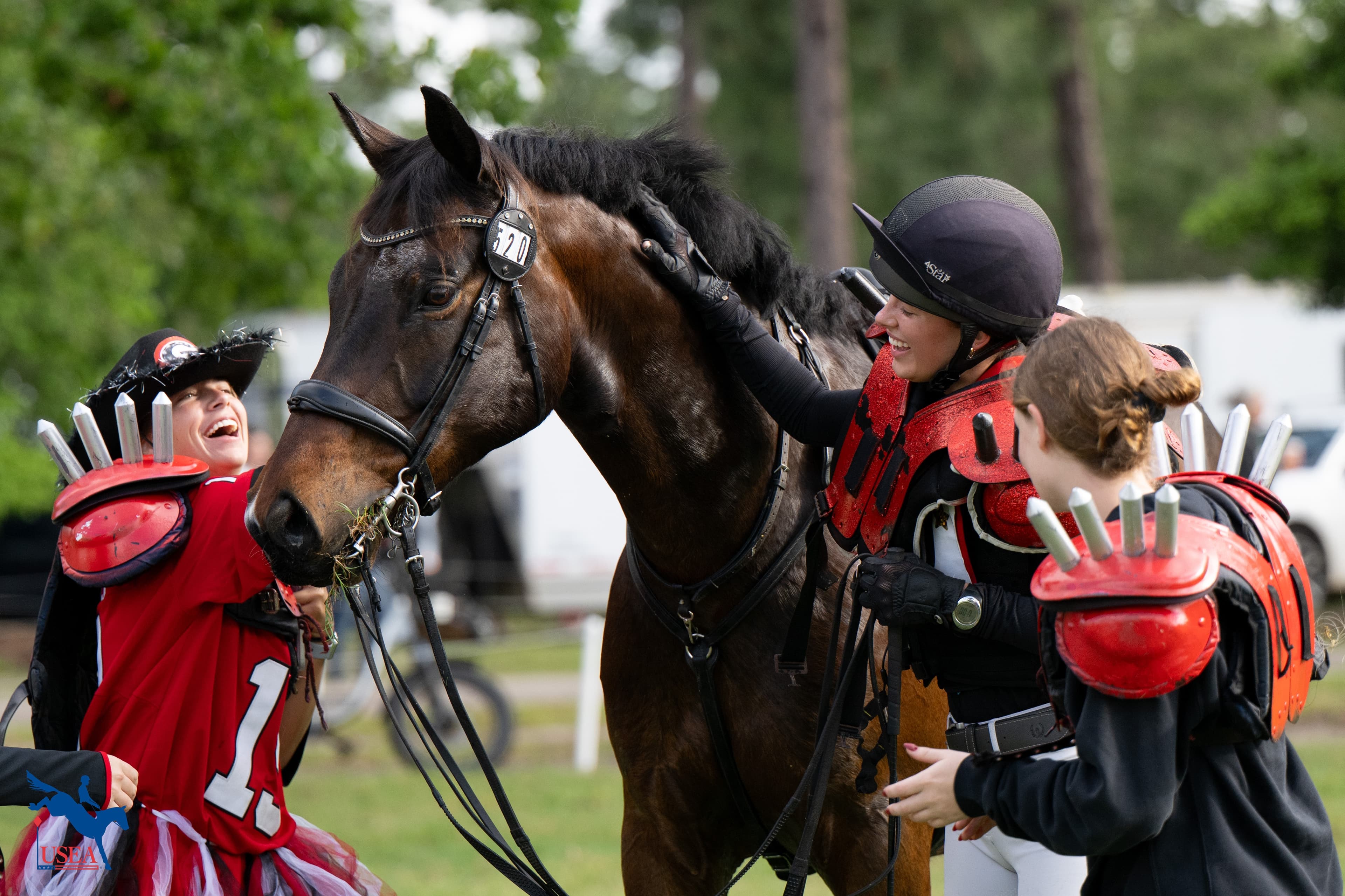Eventing Tests Introduce Riders to the Sport

True or false: only recognized horse trials can be registered with the USEA and US Equestrian (formerly USEF)? The correct answer is false! The USEA allows eventing organizers to register eventing tests with the USEA when they do not want to run a full USEA Recognized Horse Trial. A number of positive benefits come with this registration and these tests are excellent opportunities to introduce new riders and horses to the sport.
A USEA eventing test consists of one or more (or a hybrid of) dressage, cross-country, and jumping phases which has been registered with the USEA. Tests are designed to introduce the discipline of eventing and to prepare competitors and horses for USEA recognized horse trials. They provide experience for participants within an enjoyable and educational day of competition.
By registering a test with the USEA, the organizer and/or property will be covered for that time period under the USEA’s insurance policy. In addition, the USEA will provide publicity for the eventing test by including it in the weekly eNewsletter, on the website calendar listing, and posting any press releases provided by the organizer. The cost to register a test with the USEA is $100 for a single day of activities and $150 for multiple days. This is an affordable option to get your test insured and promoted!

A test can be held as a standalone event, the day before or after a recognized horse trials, or during the competition. The only exceptions are the Beginner Novice Three-Day and Novice Three-Day.
If the test is held in conjunction with a USEA recognized horse trials, it will be listed in both the print and online USEA Omnibus. If the test is held as a standalone event, it will be listed on the USEA website under educational activities. However, organizers may choose to have their test included in the Omnibus by purchasing a listing.
“It is a great benefit to have eventing tests registered with the USEA,” said Wendy Wergeles, organizer of The Event Derby® , who has registered her activity with the USEA for many years. “The listing gets published on the USEA website (and in the hard copy of the Omnibus if you choose), so it is seen by everyone. By registering with the USEA, the insurance is included – we all hate it, but we all need it! There is easy access to any paperwork, dressage tests, etc. you may need, and along with the paperwork comes the awesome support from the USEA staff. Also, the ability to also host a Young Event Horse or Future Event Horse class along with your test is a big plus.”
Tests do not have to follow the USEF Rules for Eventing, but they should conform to rules concerning safety, cruelty, and competition. Schooling and warm-up areas should be supervised.
If a rider or horse is not ready for all three phases of a USEA recognized horse trial division, then a test is a good choice to introduce, educate, and provide enjoyment. Tests can also be more affordable and don’t always require USEA membership. They are great for first time riders who want to “try” out the sport of eventing in a relaxed and educational environment.
While the following list includes the most common eventing tests, the USEA encourages organizers to be creative and develop tests of their own that will help to educate and provide enjoyment for eventers. Think of a really creative test idea? Please be sure to share it with the USEA!

Eventing Tests A-Z
- Beginner Novice Three-Day: The Beginner Novice Three-Day (BN3D) is a classic long format event held at the Beginner Novice level. Endurance day consists of Phases A & C (roads & tracks), B (steeplechase) and D (cross-country). For the BN3D level, jumps are optional on Phase B with the focus to be on pace. Organizers must combine educational components in conjunction with a competition format.
- Coaching-Allowed Test: Coaching-Allowed Test (CAT) bridges the gap between the needs of Intro/Starter and Beginner Novice students who need a helping hand. With CAT, trainers may provide verbal coaching to the student during both jumping phases while he or she is competing on course – both to assist the competitor with riding technique and safe conduct as well as staying on the correct jumping track – and trainers may also read aloud the dressage test while the student is in the competition ring, as well as provide verbal coaching. CAT divisions will be offered at the Intro, Starter, and Beginner Novice levels, but as a separate division.
- Combined Test: A combined test comprises two of the three phases of a horse trial and takes place on one day, during which the competitor rides the same horse in both phases. Combined tests can be offered at any level and the height, speed, and requirements should match those of the USEA recognized horse trials levels. The phases are scored the same as USEA recognized horse trials and each pair’s scores from both phases are added together to determine the result. Timing is optional, but if used it should conform to the standards of the level.
- Cross-Country Test: Cross-Country tests consist of distinct competitions involving various cross-country skills. The tests may include pace, taking your own line, following unknown course, top score competitions with obstacles of different values, clear round cross-country, etc. Organizers should print the rules conditions under which the test will be conducted on their website and in the USEA listing.
- Dressage Fix-a-Test: A dressage fix-a-test can be held at any level and for any dressage tests. Typically, the horse and rider perform the entire test for a judge, then spends a few minutes going over the test with the judge working on the individual movements and finally rides through the complete test again. Dressage fix-a-tests are not normally scored, but are educational activities. Many fix-a-tests will also host a dressage competition later in the day which can be scored and placed.
- DX Eventing: DX Eventing (sometimes known as “Show Cross” or a “Derby”) consists of two phases: dressage and a hybrid of show jumping and cross-country. Scored the same as a horse trial, the pair’s dressage score will be added to their jumping phase with the lowest score winning.
- Eventing Equitation: Open to riders 14 to 18 years of age, on any horse. The test shall involve a short dressage test (40%), and jumping approximately 10 cross-country-type obstacles not to exceed 3’7” (60%). The jumping may be in an arena or on a short cross-country course. Each competitor will be judged on position, seat, and effective use of aids. The competitor must ride the same horse throughout.
- Future Event Horse: A Future Event Horse class evaluates the potential of yearlings, 2-year-olds, 3-year-olds, and 4-year-olds to become successful upper level event horses. The FEH horses (ages 1-3) are evaluated in hand at the halt, walk, and trot. 4-year-olds are evaluated under saddle. Each age group is judged separately and genders within the age group are judged separately when the number of entries allows.
- Intro: A horse trial level with maximum height of jumps at 2’ (24 inches). Often uses the Beginner Novice dressage tests, but organizers have a choice to also use USDF introductory tests. Scored the same as a regular horse trials. Organizers may often label the level with different names: e.g. tadpole, green bean, pre-Beginner Novice, etc. Intro is the standard terminology used in the official USEA Omnibus.
- Novice Three-Day: The Novice Three-Day (N3D) is a classic long format event held at the Novice level. Endurance day consists of Phases A & C (roads & tracks), B (steeplechase) and D (cross-country). Organizers must combine educational components in conjunction with a competition format.
- Schooling Horse Trial: A schooling horse trial (or schooling show) is an unrecognized, low-key environment for less experienced riders and horses to practice their skills and for new officials in the sport to hone their expertise. A schooling horse trial may be all three phases and follow the official USEF Rules for Eventing, but the results will not appear on the horse’s or rider’s records or act as qualifications.
- Show Jumping Test: A show jumping competition where riders and horses can practice show jumping at the horse trials levels.
- Starter: A horse trial level with maximum height of jumps at 2’3” (27 inches). Often uses the Beginner Novice dressage tests, but organizers have a choice to also use USDF introductory tests. Scored the same as a regular horse trials. Organizers may often label the level with different names: e.g. tadpole, green bean, pre-Beginner Novice, etc. Starter is the standard terminology used in the official USEA Omnibus.
- Young Event Horse: The goal of the Young Event Horse (YEH) classes is to identify young horses that possess the talent and disposition that, with proper training, can excel in the uppermost levels of eventing. YEH classes are for 4- and 5-year-olds and consist of three sections: Conformation/Type, Dressage, and Jumping Test/Gallop/General Impression.
To register your eventing test download the Organizers’ Application for Eventing Tests. Have questions or need more information on registering your activity as an eventing test? Contact Jennifer Hardwick at [email protected] or (703) 779-0440 ext. 3003.
For a list of upcoming eventing tests, visit the Educational Activities page on the USEA website.















